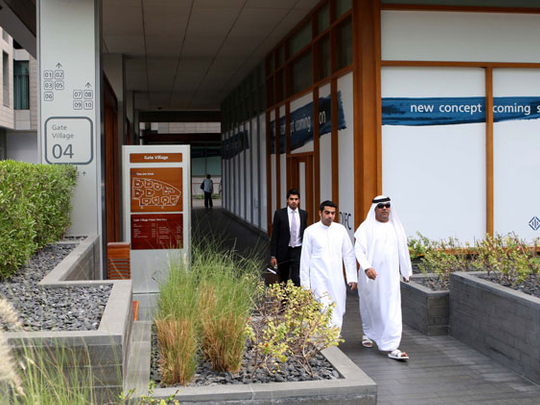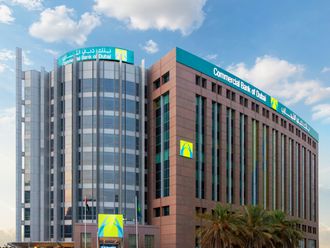
Dubai: DIFC Investments (DIFCI), the investment arm of Dubai International Financial Centre (DIFC), yesterday reported a net profit of $130.54 million for 2011 compared with a net loss of $272 million in 2010.
"Despite the impact of the European debt crisis, the global economic downturn and the regional changes witnessed in 2011, DIFC has continued to improve its financial performance by focusing on its core business, reducing costs and optimising operations efficiency," said DIFCI's chairman Abdullah Mohammad Saleh.
The company generated an operating profit of $189 million compared to a $286 million loss in 2010 and its rental income increased by 1.8 per cent.
Last year the financial free zone reported a 7 per cent increase in the number of registered companies due to a reduction in the cost of doing business.
The DIFCI chairman said yesterday that it is committed to the repayment of its $1.2 billion sukuk, which matures next month and continues to work closely with all relevant stakeholders in order to meet its commitment.
"This repayment is based on DIFCI achieving continued sustainable revenue streams, reaching agreement on the deferment of certain debts due to the government of Dubai, continued support from the government of Dubai and expected future cash flows based on the utilisation and disposal of its assets and liabilities," Saleh said.
DIFCI owes the government around $1 billion through two loans, of which the repayment has been extended.
Bankers close to the talks confirmed yesterday that DIFCI is close to a refinancing deal with a group of bankers.
In the face of the slow pace of asset sales, DIFCI's sukuk maturity was viewed by rating agencies such as Standard & Poor's and Moody's as one of the most challenging debt repayments Dubai Government related entities (GREs) face this year.
S&P recently placed DIFCI on negative credit watch citing the heightened refinancing for the $1.25 billion sukuk for which it has little room for delays in its efforts to secure a bank loan and government support to refinance.
With sustained improvement in the local economy and improving liquidity in the bank market analysts say refinancing will not be a big issue for Dubai GREs including DIFCI.
Arranging funds
"We don't see any major issue with refinancing across the region. Most of the companies that have near term maturities have either arranged to meet the commitments or are in the final stages of arranging the funding. We are aware that DIFCI is also nearing a deal," said Jacco Keijzer, head of debt capital markets for the Middle East and Africa for the Royal Bank of Scotland.
Analysts said better operating performance, strong cash flow and improved valuation of the property portfolio of DIFCI have improved its credit standing. DIFCI devalued its property portfolio by $374 million in 2010.
With the stabilisation of rental income in 2011, DIFCI saw an increase in the value of its property portfolio to $181 million which has been recorded as a gain in the consolidated income statement.










